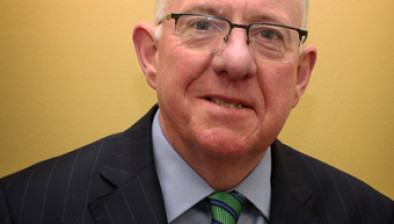New research finds jurors do not subscribe to rape myths and casts doubt on mock jury studies

The claim that juries subscribe to rape myths and are biased against complainants has no basis in empirical fact, a new study has found.
The work, undertaken by academics at University College London, is also informed by research that casts serious doubt on the value of mock juries as a proxy for real jury attitudes.
North of the border, the Scottish government is relying on mock jury research to inform proposed changes to the criminal justice system, including the abolition of the Scots ‘not proven’ verdict.
Between 2017-2019, Professor Cheryl Thomas, director of the UCL Jury Project, conducted research commissioned by the then President of the Queen’s Bench Division, Sir Brian Leveson, to inform the senior judiciary on whether they needed to change how jurors are directed in rape cases.
The research involved 771 jurors, belonging to 65 discharged juries in four different regions.
Concerns have arisen in recent years over the conviction rate in rape cases and the possibility that this is lower than it should be because juries believe in rape myths. A petition to Parliament in 2018 called for jurors to be given training in such myths, citing various anecdotal sources. Calls have also been made, in the absence of any empirical evidence, for the complete abolition of juries in rape trials.
Professor Thomas writes: “None of these claims were based on any research with actual juries in England and Wales. Instead they have relied on public opinion polls, a single study that used students and volunteers to act as proxy (“mock”) jurors and anecdotal views of prosecutors in rape cases who were asked post-acquittal why they thought they did not achieve a conviction in their cases.”
The petition claimed that, compared to other crimes, the conviction rate in rape cases is 21 per cent lower.
Professor Thomas, however, could find no source for this figure.
She states: “It is unclear what the source could be of the statistic cited that the conviction rate in rape trials is 21 per cent lower than other crimes.”
In fact, the data show that the conviction rate is comparatively higher.
“Detailed research on all jury verdicts in all courts in England and Wales over a substantial period of time had already shown that juries convict in rape cases more often than they acquit, and that the jury conviction rate in rape cases is higher than it is for other serious crimes such as attempted murder, GBH, and threatening to kill.”
The research found that “hardly any jurors believe what are often referred to as widespread myths and stereotypes about rape and sexual assault”.
The vast majority of jurors “do not believe that rape must leave bruises or marks, that a person will always fight back when being raped, that dressing or acting provocatively or going out alone at night is inviting rape, that men cannot be raped or that rapes will always be reported immediately”.
The finding of a serious disparity between the beliefs of actual jurors compared with those of non-jurors is supported by a separate study the unit undertook, which found that most jurors are reluctant to even serve on juries.
In this survey, 87 per cent of 1,175 jurors said they would have opted out if jury service were voluntary. In contrast, there is an inherent self-selection bias in mock juries that makes them a poor proxy for real ones.
Professor Thomas writes: “Regardless of how demographically representative a group of volunteer “mock” jurors are, the very fact that they have volunteered to take part in a mock jury study means they cannot be representative of the vast majority of those who actually serve on juries in England and Wales.”











